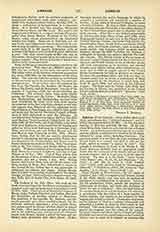

Lezana, JUAN BAUTISTA DE, theologian, b. at Madrid, November 23, 1586; d. in Rome, March 29, 1659. He took the habit at Alberca, in Old Castile, October 18, 1600, and made his profession at the house of the Carmelites of the Old Observance, at Madrid, in 1602; studied philosophy at Toledo, theology at Salamanca, partly at the college of the order, partly at the university under Juan Marquez, and finally at Alcald under Luis de Montesion. For some years he was employed as lecturer at Toledo and Alcala, but having been sent to the general chapter of 1625 as delegate of his province, he remained in Rome as professor of theology. At the following chapter (1645), at which he assisted in the quality of titular provincial of the Holy Land, he obtained some votes for the generalship, but remaining in the minority he was nominated assistant general; for some years he also filled the office of procurator general. In addition to these dignities within the order, he filled for sixteen years the chair of metaphysics at the Sapienza., and became consultor to the Congregation of the Index under Urban VIII, and to that of Rites under Innocent X. Appointed to a bishopric, he requested a saintly nun to recommend an important matter (the nature of which he did not disclose) to Our Lord in prayer, and received through her the answer, which he acted upon, that it would be more perfect for him to refuse the dignity.
Lezana was a great authority on canon law, dogmatic theology, and philosophy, and his writings on these subjects still carry weight. His historical works, however, are not of the same high standard. A notice on his “Annals of the Carmelite Order” (four folio vols. were published between 1645 and 1656 and there remains another vol. in MS.) will be found m the bibliography accompanying the article Carmelite Order. The following are the principal products of his indefatigable pen: (I)”Liber apologeticus pro Immaculata Conceptione” (Madrid, 1616). (2)”De regularium reformation” (Rome, 1627), four times reprinted and translated into French, although it is doubtful whether the translation appeared in print. (3)”Summa quaestionum regularium”, five vols., the first of which appeared in Rome (1637), the last in 1647, most of them were repeatedly reprinted. (4) and (5) Two works, “Columns immobilis”, and “Turns Davidica”, on the Blessed Virgin del Pilar, at Saragossa (1655 and 1656). (6)”Maria patrona” (Rome, 1648). (7) Life of St. Mary Magdalene de Pazzi, in Spanish (Rome, 1648). (8)”Summa theologiae sacrae” (3 vols., Rome, 1651 sqq.). (9)”Consulta varia theologica” (Venice, 1656). Also some less important works.
B. ZIMMERMAN

